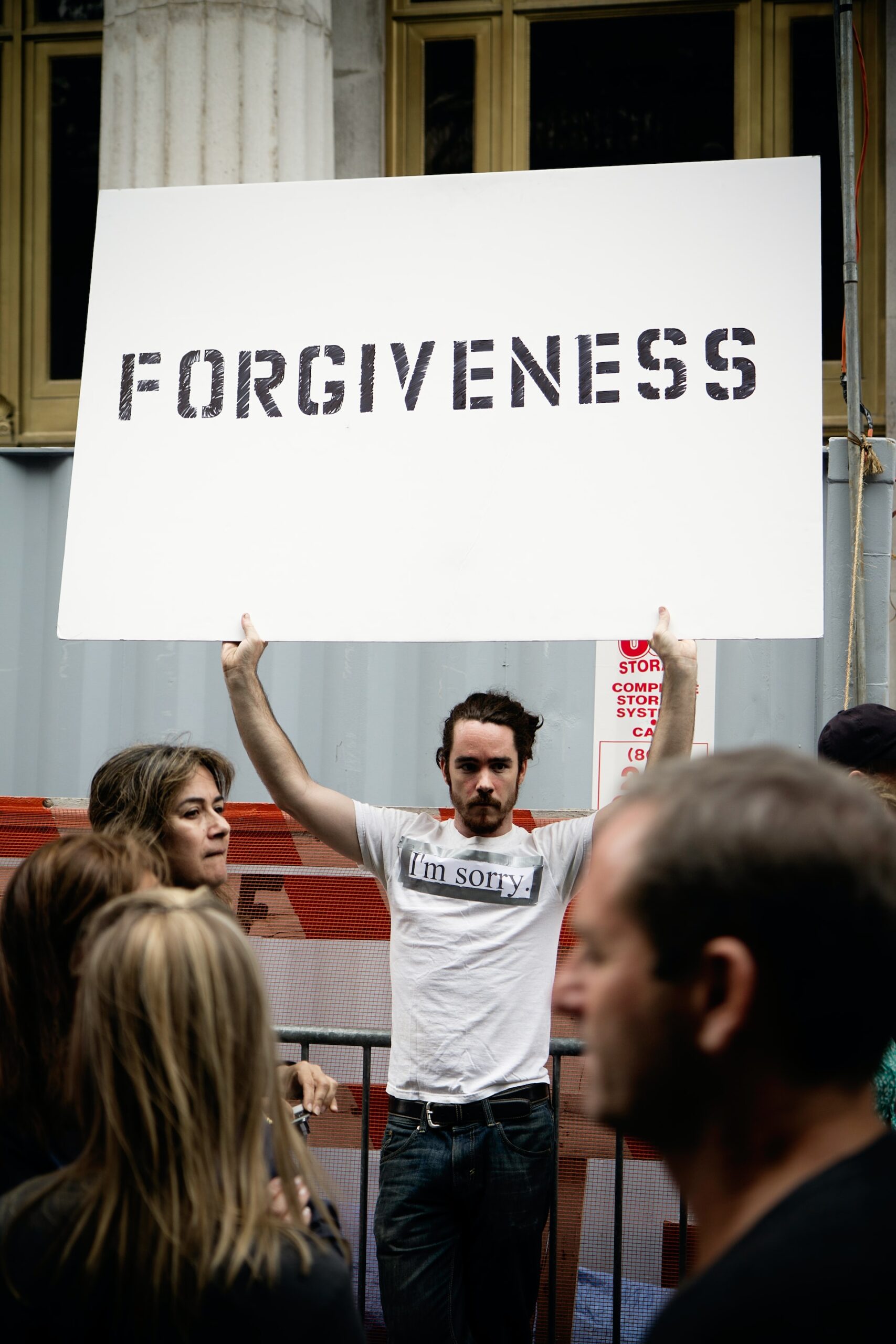Learning How to Forgive
Connect With UsLEarning How to Forgive
Connect With UsHave you been hurt, or have you hurt someone?
Learn how to forgive and be forgiven

We are supposed to forgive the people who have hurt us, but that is easier said than done. We have all been hurt or wronged from time to time, but if you are in a situation where you can’t let go of the anger and or thoughts of revenge, it can start to be all-consuming. Maybe you have experienced bullying, a partner cheating on you, or a bad relationship with a family member. Betrayal or hurt can be devastating and bring up a mountain of negative emotions.
Oftentimes, these negative feelings take hold of us and stop us from living our lives. If you are feeling unrelenting anger, resentment, or bitterness, you may be struggling with forgiveness.
Why Choose Forgiveness?
If it weren’t for forgiveness, we would have years and years of resentment and bitterness weighing us down. When we forgive someone, we aren’t saying that what they did was okay, but instead we let go of resentment and bitterness towards that person or the things they did to wrong us. Forgiveness isn’t forgetting how you were hurt, but it is allowing yourself to move on from that hurt.
Forgiveness isn’t about forgetting what someone did; it is about healing your own heart.
If you have been consumed by thoughts of anger, resentment, bitterness, or revenge, you know how easily those feelings can consume you. When we forgive, those negative emotions lose their power over our lives.
Watch Encouraging Messages Online
Check out messages on relevant topics to your life right now or join our online church experience this weekend.
Practicing Forgiveness
Forgiving someone is easier said than done, especially when we are bogged down by a mess of emotions. These practices can help you navigate the process of forgiveness.
Acknowledge Your Feelings
It is okay to have strong emotions when we are hurt. When we practice forgiveness, it can be helpful to start with understanding our own emotions: what they are and why we are feeling them. Because forgiveness is primarily about our own hearts (and not the person who hurt us) it is good to start with our own feelings.
Have an Honest Conversation With the Person Who Hurt You
If at all possible, it can be incredibly helpful to have an honest conversation with the person who wronged you. Maybe this is a phone conversation or an in-person conversation. Set expectations that you want to share your feelings and ask that person to allow you space to listen and understand where you are coming from. You may even tell them you forgive face to face.
If You Are Unable to Have that Conversation, Have it With Someone Else
There may be instances where a conversation would help us forgive but is impossible. Maybe the person who hurt you doesn’t want to talk or isn’t living anymore. In these situations, expressing yourself is still good. Try writing your feelings down in a letter, journaling, or talking to a counselor.
What if I Need Forgiveness?
Just like you have probably been hurt by other people, chances are you have hurt someone else, even unintentionally. Maybe you need to ask forgiveness from your parents, a friend, even God. If you know if you have hurt someone and need forgiveness, you can follow these same steps. Be honest with yourself about how you hurt them and have an honest conversation where you sincerely apologize and ask for forgiveness.
1 John 1:9 says that “If we confess our sins, God is faithful and just and will forgive us our sins and purify us from all unrighteousness”. No matter what, God will forgive you. If God can forgive you, and those who have wronged you, He can help you forgive yourself when you are wrong and forgive others who have wronged you.
If you feel trapped by anger, bitterness, or resentment for long periods of time and feel like you could benefit from additional support, a counselor, pastor, or support group can help you process your emotions.
When anger, revenge, and bitterness trap you, forgiveness sets you free.

